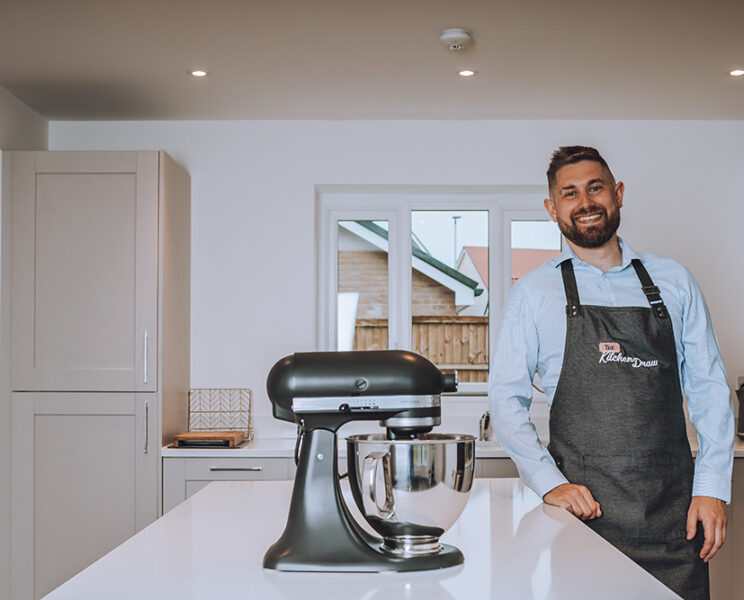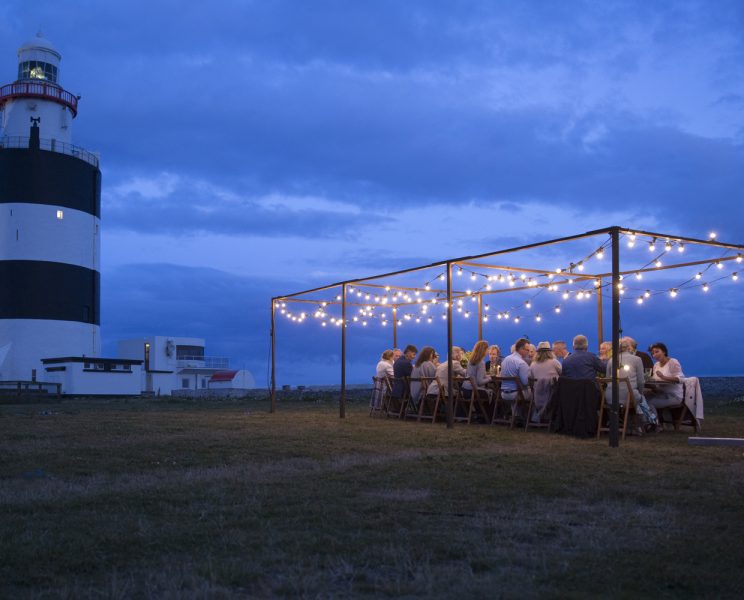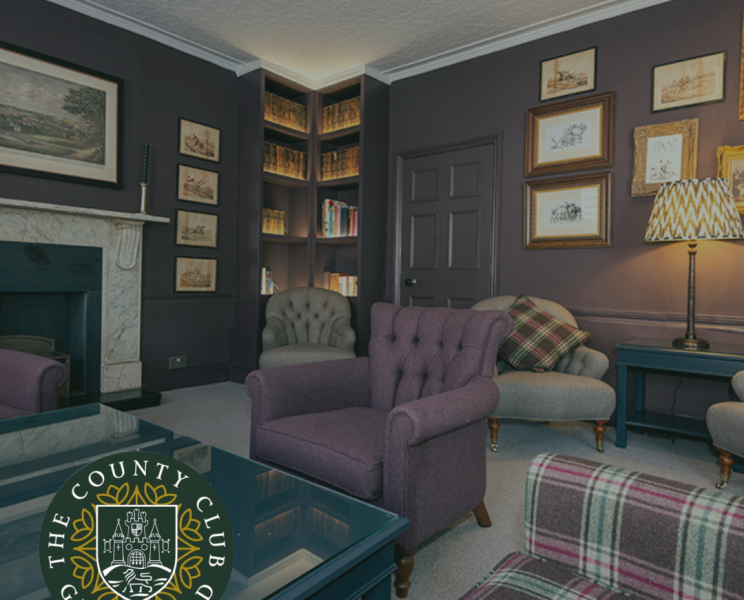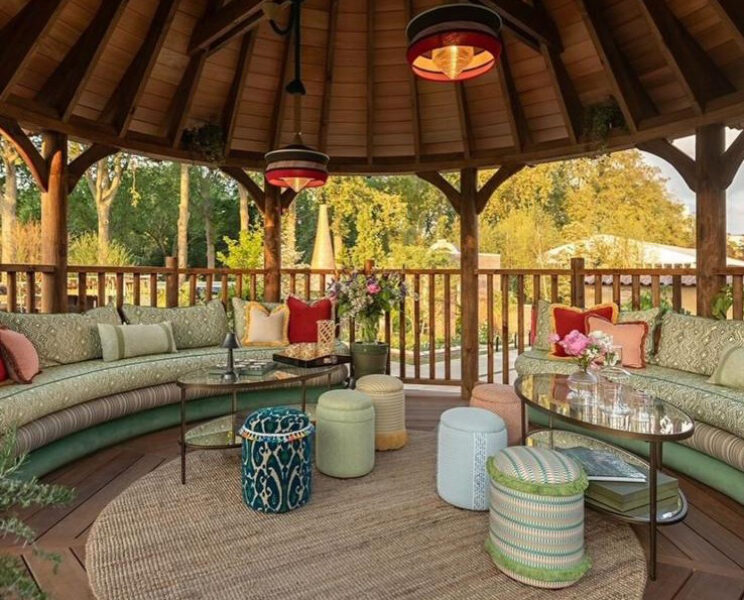GoodCause Travel & Events
Could you tell us about your industry experience: what led you to starting your business and why it is called GoodCause Travel & Events?
Creating tailor-made experiences was what drew me to events, just having a blank canvas and being able to work with various venues and locations was very attractive to me. In 2014, after nine years at a Destination Management Company focused on the UK and Ireland, I wanted to specialize and find my unique and meaningful niche. When you work for a large company, there is that pressure of doing a lot of varied things, whereas I really wanted to narrow it down. I needed to start with my values.
We knew that we wanted to make a difference in travel and events. We had to create a positive impact for the environment, for the local communities of our destinations and their prosperity, and for the well-being of all the stakeholders. This gave my business the meaningful direction I was looking for. GoodCause Travel & Events focuses on the positive impact and transformative power of travel and events – hence the name.
You started your company back in 2014, when the topic of sustainable travel and events was very new. How did it resonate with your customers and has your initial concept transformed since then?
The topic of sustainable travel and events may have been new in the industry of incentive and bespoke travel – the key industries for our business – but in mega events and festivals it was actively explored way before 2014. The key international standard for sustainable events – ISO20121 – was created in the UK for London Olympics 2012 – and it could be applied to any event small or large, so we had good guidelines to follow. But yes, there was no buzz in the industry back when we started about sustainable travel and events, the focus was very much on the fun hedonistic element. And we had to educate our clients, as well as ourselves, on how to ‘marry’ hedonistic and meaningful within one programme.
Could you expand on how you approach sustainability education?
We are constantly on the journey of educating ourselves on the vast topic of sustainability. When we just started, we focused a lot on CSR (Corporate Social Responsibility) and added CSR activities in our incentive programmes, which otherwise were purely hedonistic. Then we realised this is not enough and we need to dig deeper and step away from the add-on principle and strive for the whole programme to be sustainable, but at the same time fun and exclusive.
As much as Covid was a disaster for operations it helped a lot to free up valuable time for reflection and education. My personal educational milestones during the Covid lull were enrolling into an online MA course in Creative Events Management. Sustainability was one of the key pillars of the course, so this helped a lot to expand our knowledge in the area.
Volunteering for SITE (Society for Incentive Travel Excellence) as a Sustainability Ambassador for SITE Scotland chapter was another great educational path – I led the chapter’s sustainability accreditation in 2021 and can highly recommend the amazing educational resources the association offers.
I also successfully passed the CITP exam (Certified Incentive Travel Professional), which focuses a lot on sustainability in incentive travel.
And, last but not least, GoodCause Travel and Events has been on its own sustainability certification journey for a year – with Green Tourism. In April this year we received Silver Award, which is an amazing recognition of our efforts, and also has given us a great opportunity to structure our operations to address all the three pillars of sustainability – environmental, social and economic (the so-called Triple Bottom Line). Away from the add-on approach and towards a more holistic and all-encompassing philosophy.
Could you clarify how you combine various sustainability aspects within one programme?
Sure, there is the environmental aspect, which is making sure that the travel experience or event doesn’t create a negative impact on the local environment. We work with suppliers with solid sustainable credentials. We also calculate and balance inevitable carbon footprints from our travel and events through Ecolibrium tools and make contributions to their native tree planting or clean energy projects.
We tackle food waste – which is one of the biggest issues for events. If our suppliers don’t have their own channels for surplus food donations, we recommend Community Fridge charity network. They act as a hub within local communities and can organise cookery workshops using the donated ingredients. This adds an extra dimension of social sustainability.
I think people are clear about what environmental sustainability is – trying to tackle carbon emissions, energy waste, food waste, water waste, and so on. Social sustainability, however, is a more obscure area.
We approach it by making sure that our programmes resonate well with the local communities and really make their authentic culture shine. That’s why we like to take our clients off the beaten track to include experiences with the locals. When we take our customers to local farms or artisan producers, it contributes positively to their economic sustainability, but also raises the local pride and authentic cultural awareness. We also like to collaborate with local social enterprises and use their grassroots connections within the local communities to provide genuine authentic and unique cultural encounters to our clients while contributing positively to these communities.
Do you feel that the demand for sustainable travel and events from the customers’ side has increased?
Yes definitely. There is more awareness generally about climate emergency and the various pillars of sustainability. As far as we are concerned, we have spent considerable time over the past years clearly communicating our values through our website and social media, so when we get requests, they would most likely contain a requirement for a more meaningful angle, rather than a standard incentive event or bespoke travel programme.
The industry is also actively discussing the topic of sustainable travel and events – a good example of this was a recent SITE Global Conference in Dublin with educational sessions firmly focussed on sustainability. There is of course a question mark that worries a lot of industry peers – in the current post-Covid fast industry tempo coupled with the lack of resources – how wide will the gap between sustainable intentions and sustainable practices be?
I firmly believe that this is the industry’s responsibility to lead by example and that sustainability in travel and events needs to simply become another ‘hygiene factor’ – included in the projects of anyone who calls themselves an event professional. This is our responsibility for the industry and the planet.
If clients believe that hedonistic cannot be green, and we need to persuade them to go for sustainable solutions – well, this is where our creative juices can get flowing. When we look at the contemporary properties and venues, which combine sustainability and high-end luxury in a cool and creative manner – it’s obvious that one doesn’t contradict the other, quite the opposite.’
Could you give us an example of a recent values-based programme in your destinations of the UK and Ireland, which was hedonistic, as well as sustainable?
‘As an example, there was an incentive programme from The Netherlands. The client approached us with the request for a meaningful programme in London, with strong ‘giving back’ elements.
We used our screening checklists to pick sustainable venues for them. As a standard, we offer two carbon balancing options through the partnership with Ecolibrium – Tree+ (planting native broadleaf trees) or Energy Revolution (supporting local clean energy projects like solar panels on school roofs).
We offered a ‘non-guide’ tour with a local social enterprise which employs former homeless people as guides and they can relate unique off-the-script stories to the clients. For the guides it’s a valuable working and social integration experience, so a win-win scenario.
The same group enjoyed a well-being session with yoga and meditative tea ceremony on top of an iconic London skyscraper, followed by a healthy plants-based lunch. We didn’t bring them to the attraction for a standard tour – they got some quality time to themselves, to relax, to slow down, to connect more deeply with their colleagues – and all this with wonderful panoramic views of London.It’s important for us to think about giving back to all the stakeholders of a programme – the destination, the participants themselves, and the organizer. Hence the slowing down element is important – away from the stress and a fast tempo hop on/ hop off itinerary and towards a deep and meaningful experience, which leaves lasting emotional memories and connects us – which is what everyone wants to achieve from a bespoke programme.
How do you go about suggesting meaningful elements, like the ones you have described above, to customers? Do you offer a few different options and get them to pick or is there a process?
‘There is a process, absolutely, based on empathy, which in bespoke experience design is considered the very first step of the process.
I’m often inspired by the amazing Wild Works Theatre in Cornwall, who stage truly immersive and sustainable productions in the wild and involve the local communities – they call that first stage of interaction with your customer being ‘porous’. So rather than barging in with our expertise – we can do this and that and have done this and that in the past successfully – we step back and listen and really try to hear – what is our client dreaming about achieving? What emotion, what outcome? Understanding the demographics of the participants and the relationships between them is also important.
And then we design the first programme prototype, test it with the client, often during a site visit, especially for larger projects, take their reactions and suggestions on board, and finesse more. There could be changes even during the project itself, as we all know – dealing with changes is part of the event professional’s job. But we really try to create that partnership and mutual trust with all the stakeholders of our projects – client, suppliers, participants, so that changes are not perceived as stress, but as an organic opportunity to co-create something genuine and beautiful together. Like a piece of art. I am an artist at heart – I studied art and architecture, as well as linguistics, I think it helped to develop the deep creative approach to my business.
Collaborations and co-creation are very important to us – we try to avoid the top-down choreographed approach, which doesn’t immerse or connect. We like it in experience design when everyone plays their parts like actors, and the experience becomes a stage. Then it becomes a genuinely transformative liminal experience – playful and away from the place and time, recharging and moving the event’s frames beyond the physical.
Starting from our values – the ‘Why’ of our business – has helped us to attract likeminded suppliers, partners, and clients, so it’s a pleasure to be working together as an extended team on our projects. And the pleasure of working on experiences as works of art is directly connected to the well-being of us – the organizers – something traditionally forgotten in our industry, where the role of an event’s manager has often been portrayed as some sort of a stress-fender, which is not very sustainable.
The most satisfying aspect as an experience designer is about creating wellbeing and the ability to connect to your better self. That works for all the stakeholders – the organizer, the participants, and the suppliers. If we manage to create this special liminal bubble – the space away from the place and time, where you can be your better self, rediscover your inner child, and experience the sense of freedom and belonging – this is what drives me!’




